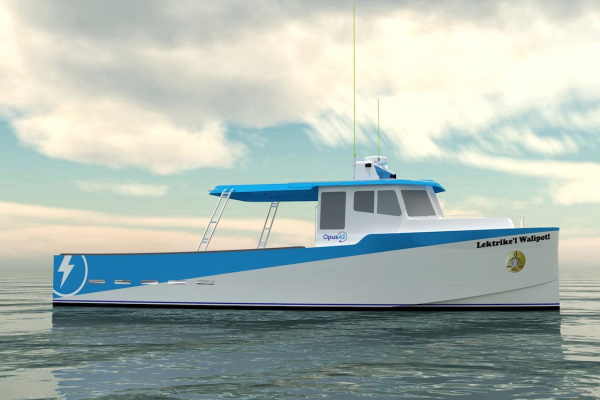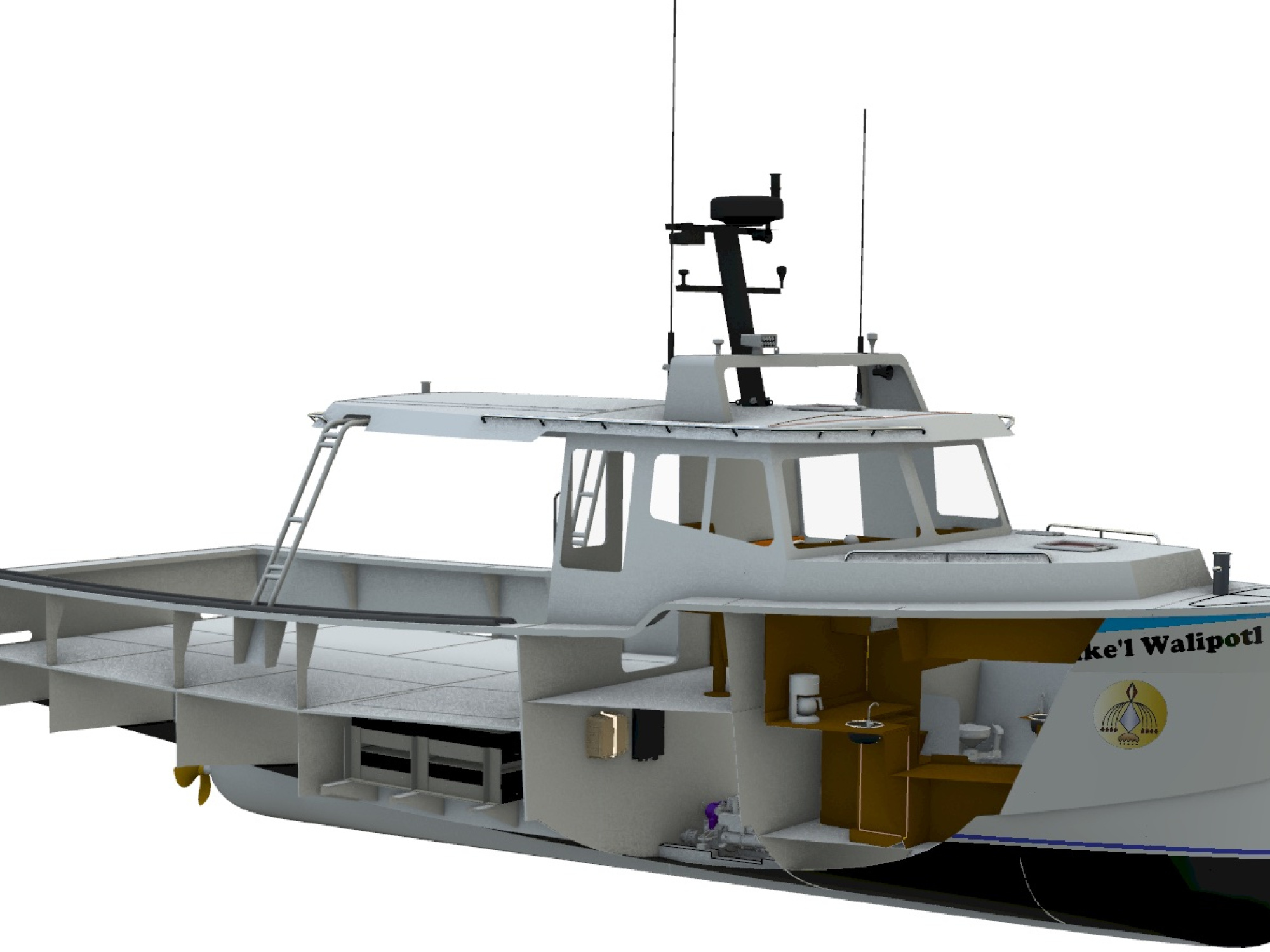
In Nova Scotia, fishing has sustained coastal communities for generations. Earning a living from the ocean is part of our culture. At the heart of this industry is lobster, generating over $1 billion annually—about 25 per cent of which is caught off Cape Breton’s shores.
The urgent challenges of climate change are prompting industries to evaluate how they operate and how they can reduce their carbon footprint to fight climate change. Marine industries are in the same boat. With the provincial lobster fishery generating CO2 emissions equal to 35,000 cars being driven for a year, finding cleaner, more efficient ways to work the water is a must.
In Cape Breton, the Membertou First Nation is leading the way in transforming their lobster fleet by developing Canada’s first zero-emission electric lobster boat, Lektrike’l Walipotl (“electric boat” in Mi’kmaw). For the Mi’kmaq, fishing is not just a livelihood—it’s a tradition rooted in Netukulimk, the principle that economic wellbeing should never come at the cost of environmental health.
Nova Scotia’s First Nations communities are leaders in renewable energy projects in the province including investing in wind, solar, and green hydrogen. With expertise in cutting-edge clean technologies, and traditional knowledge of how to work in harmony with nature, Membertou saw a bold new future for fishing where sustainability and economic opportunity go hand in hand.
Terry Paul, Chief and CEO of Membertou, summed up how the electric boat project aligned with their overall vision for the future. “An electric lobster vessel is the natural next step in our drive toward becoming leaders in the production and use of renewable electricity.”
Although battery-electric designs existed for some types of vessels such as ferries, no electric fishing vessel design existed. Membertou was in uncharted waters, but they didn’t give up. Rather than retrofit an old model, Membertou decided to build from scratch, forming a partnership with marine architects, Allswater, battery-electric specialists BlueGrid energy, and environmental organization Ocean’s North. Partner expertise, combined with Membertou’s understanding of the needs of local fishers, fueled hope and optimism that the world’s first electric lobster boat would become a reality. The collaboration led to a purpose-built boat designed for efficiency and performance.
Lektrike’l Walipotl features a streamlined, lightweight hull optimized for electric propulsion. Its battery system delivers 400-500 kWh of power, enough to easily power a day’s fishing for the majority of the fleet. More than just an alternative to diesel, the boat represents a leap forward in marine innovation.
A standout feature is bi-directional charging. “When the boat isn’t in use, stored power can be fed back into the grid,” explains Andrew Boswell, CEO of BlueGrid by Rimot. “This provides financial incentives for fishers and strengthens the local electricity grid.” Lower fuel costs also mean fishers can offset the higher upfront price of an electric vessel over time.
Beyond cost savings, the boat improves working conditions. Without diesel fumes, crew members breathe cleaner air. The electric engine also runs quieter, reducing noise pollution that can harm marine life. And with no risk of diesel spills, the water stays cleaner benefiting both the industry and the environment.
Set to launch in the 2025 lobster season, Lektrike’l Walipotl is just the beginning. A shift to electric vessels could cut Nova Scotia’s lobster fleet emissions by 70 million pounds of CO2 annually, equivalent to the emissions of 12,800 cars. If the model proves successful, it could be adopted by fleets nationwide and beyond. Membertou is already looking ahead, exploring ways to scale up production and establish Cape Breton as a hub for zero-emission marine innovation—creating new jobs in clean technology while securing the future of the lobster industry.
“The project … sends a signal to the broader industry in Atlantic Canada: Electric vessels work, and they are ready now,” says project partner, Allswater CEO, Rob Crutcher. “We look forward to seeing Canada’s first electric lobster boat join the Membertou fishing fleet, and hope it will be the first of many,” adds Membertou Chief, Terry Paul.
When communities come together, they can achieve amazing things and have a big impact. Membertou’s leadership in electrification is about more than technology—it’s a commitment to the sustainability of an industry. By investing in clean energy and addressing climate change, Membertou’s lobster fleet is leading the way into a cleaner, more prosperous future.

Render of the Membertou's Zero-Emissions Lobster Boat